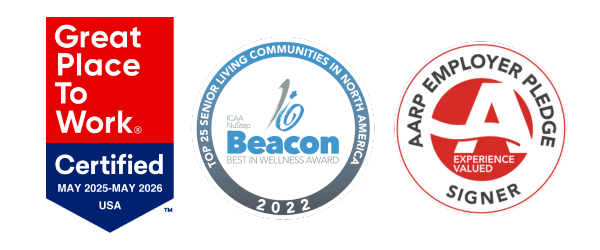Memory is the treasure and guardian of all things.—Marcus Tullius Cicero
Having memory loss is just another lovely treat of getting older. It may start out small, with misplaced keys or the forgotten name of an acquaintance, but like most conditions, it could get progressively worse if you do nothing to try to make it better. Considering that almost 10% of people between the ages of 65 to 74 experience significant memory loss, it is an issue that deserves attention. Giving your memory a workout is not a one-size-fits-all approach, but rather, a series of positive lifestyle changes combined with a bit of effort that can make a large impact on your ability to recall short- and long-term information. Everyone, no matter what age or stage of life, can follow these tips for improving memory and staying sharp.
The Usual Advice
If you want to continue to enjoy independent living in Chapel Hill, you should begin to make or maintain healthy choices to preserve your level of function and get the most out of life. Following a healthy diet and exercising regularly can improve your memory as much as your physical health. Getting regular restful sleep is another big factor that affects both physical and mental fitness. There are also the things you should not do, such as smoking, drinking too much alcohol, or abusing prescription or illegal drugs. If you have any chronic medical conditions, manage them with the help of your health care professional and notice if you have any changes, especially after medication adjustments. Make time for socialization as well; having a support system can help with your mood and reduction of stress, both of which may impact recall. These are all common sense factors that impact your life, including your memory.
If You Don’t Use it, You Lose it
In earlier stages of life, your brain had to work often to learn new skills and stay on top of your responsibilities. After retirement, you may find yourself with less need for those activities, but that slowdown of critical or analytical thinking as well as problem-solving can negatively impact your memory. Find ways to incorporate those skills into managing your activities and time to keep your brain active and to stay motivated. Some ways to flex your memory muscle include:
- Remembering names after introduction
- Maintaining a calendar with important birthdays, anniversaries, and holidays
- Make to-do lists, visualizing each activity for significant details
- Pay attention during conversation
- Read regularly, and make time to reflect for better comprehension
- Stay organized with your belongings and your plans
- Employ mnemonic devices to remember details
- Play thinking games, such as crossword puzzles and Sudoku





